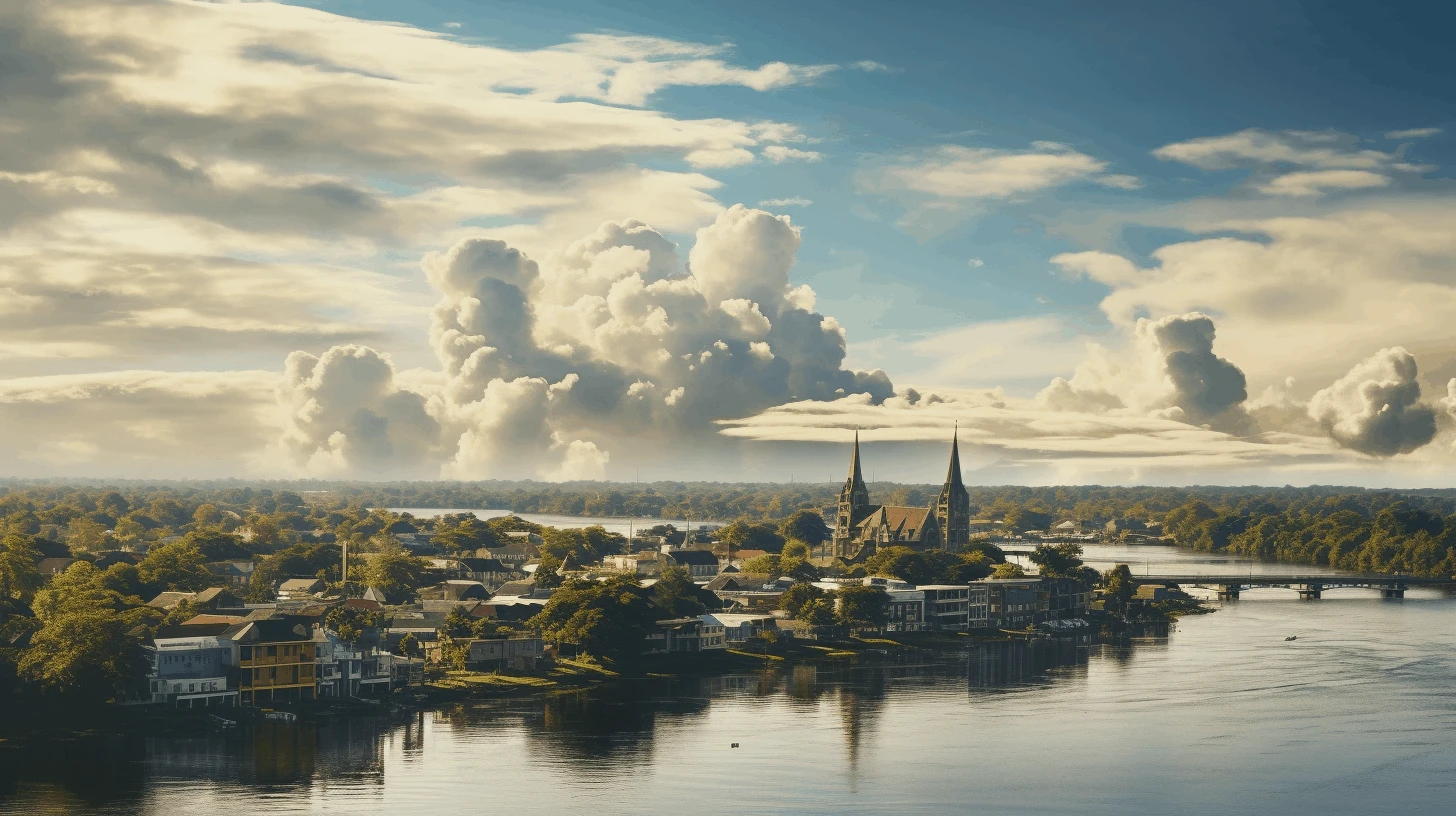
Prayer times in Suriname
8:23 PM • -03:00 GMT
Payer Times for Cities in Suriname
| City | Fajr | Sunrise | Dhuhr | Asr | Maghrib | Isha |
|---|---|---|---|---|---|---|
| Albina | 05:38 | 06:47 | 12:48 | 16:05 | 18:49 | 19:54 |
| Brokopondo | 05:42 | 06:51 | 12:52 | 16:08 | 18:53 | 19:58 |
| Brownsweg | 05:42 | 06:52 | 12:53 | 16:09 | 18:54 | 19:59 |
| Lelydorp | 05:43 | 06:52 | 12:53 | 16:10 | 18:54 | 19:59 |
| Moengo | 05:39 | 06:49 | 12:49 | 16:06 | 18:50 | 19:56 |
| Nieuw nickerie | 05:50 | 06:59 | 13:00 | 16:17 | 19:00 | 20:06 |
| Onverwacht | 05:43 | 06:52 | 12:53 | 16:09 | 18:53 | 19:59 |
| Paramaribo | 05:43 | 06:52 | 12:53 | 16:10 | 18:53 | 19:59 |
| Totness | 05:47 | 06:57 | 12:57 | 16:14 | 18:58 | 20:03 |
| Wageningen | 05:49 | 06:58 | 12:59 | 16:15 | 18:59 | 20:05 |
Prayer Times of Others Cities in Suriname
About Suriname
Suriname, the smallest independent country in South America, is a true jewel of biodiversity, flaunting a blend of cultures, languages, and religions. It is situated on the northeastern coast of the continent, bordered by French Guiana, Guyana, and Brazil. Approximately 90% of the country's 575,000 people live in and around Paramaribo, the vibrant capital city, which is adorned with Dutch colonial architecture and recognized as a UNESCO World Heritage Site. The multiethnic and multicultural character of Suriname's population is one of the country's defining features, with significant contributions from the indigenous Amerindian, Maroon, Hindustani, Javanese, Chinese, and Creole communities. The Surinamese people communicate in a multitude of languages, but the Dutch language serves as the lingua franca. This cultural richness is reflected in Surinamese cuisine, which is as diverse as the population itself. Suriname boasts a magnificent untouched tropical rainforest, spanning approximately 80% of the country's land area, and is home to an incredible variety of fauna and flora, including jaguars, giant river turtles, and numerous bird species. The Central Suriname Nature Reserve, another UNESCO World Heritage Site, is a testament to Suriname's commitment to conservation. Suriname's economy is majorly dependent on its rich mineral resources, with gold mining, oil, and bauxite being the primary sectors. Yet, the country is steadily trying to diversify its economy with sectors like agriculture, tourism, and forestry showing promising growth.